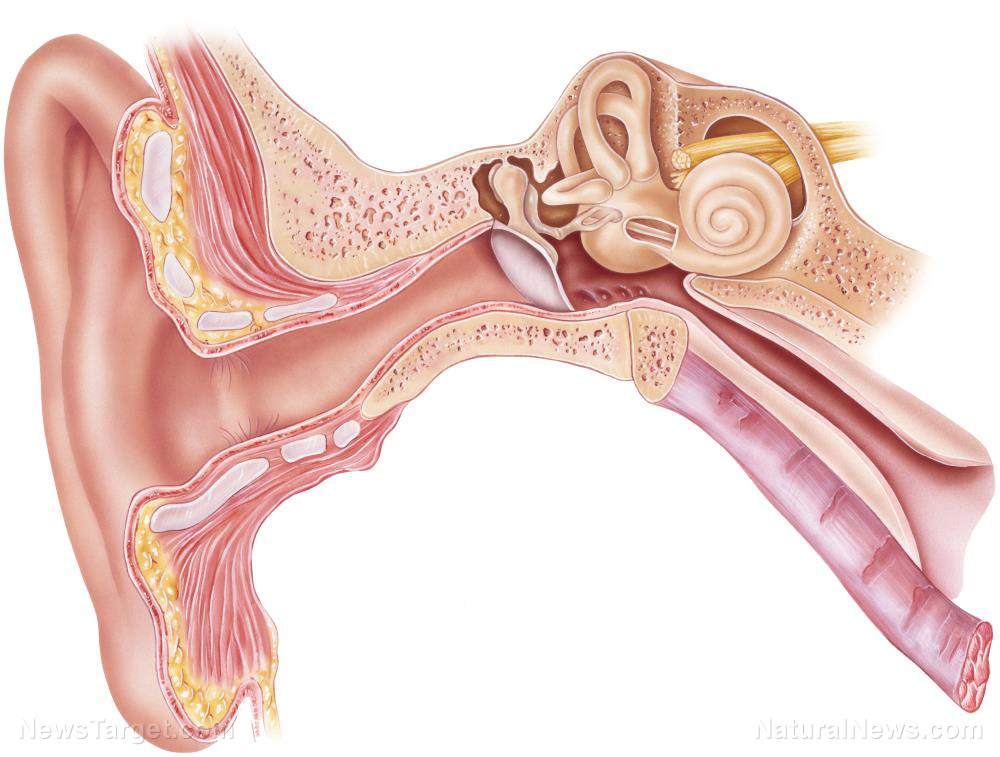Deaf after a loud concert? Researchers explain why
11/27/2019 / By Edsel Cook

Most people know that listening to loud sounds will temporarily disrupt their hearing. Swedish researchers can now tell us how that happens — they identified the specific part of the hearing organ affected by sounds.
“We have discovered that a tiny structure in the cochlea known as the tectorial membrane plays an important role in this process, by acting as a storage depot for calcium ions,” explained Linköping University (LiU) researcher Anders Fridberger. “These calcium ions contribute to regulating the function of the sensory cells.”
When a calcium atom obtains a positive electric charge, it becomes an ion. Calcium ions perform crucial roles in hearing and other bodily functions.
The hearing process involves the transformation of sound waves into nerve impulses which go to the brain for processing. The conversion happens in the cochlea, the so-called “inner ear” whose shape brings to mind the spiral-shaped shells of certain snails.
Sensory cells cover the entire cochlea. These sensitive cells pick up the vibrations linked with sound and send the appropriate signals to the brain.
A fluid envelops the sensory cells of the cochlea. Earlier studies showed that the medium did not contain much in the way of calcium ions.
Oddly enough, other experiments that transferred sensory cells into fluids with normal levels of calcium showed that the cells stopped working correctly in the new, ion-rich environment. (Related: Magnesium may lead to breakthrough treatments for tinnitus sufferers.)
A tiny membrane in the inner ear manages the hearing process
The LiU research team evaluated the concentration of calcium ions in the inner ear of guinea pigs. They selected the well-known lab animal over the usual mice and rats because its cochlea closely resembled the human inner ear.

To keep track of the calcium ions in the inner ear, the researchers applied fluorescent markers to the charged particles. They were able to identify the part of the inner ear with the highest amount of the ions.
The tectorial membrane serves as a barrier between the liquid and the sensory cells. It contains a higher number of calcium ions than the medium it keeps out.
The LiU researchers theorized that the membrane acts as a storage location for calcium ions. It ensures a sufficient supply of ions for the sensory cells so that they don’t have to depend on the liquid medium.
When the researchers applied a substance that scavenged calcium ions from the tectorial membrane, the sensory cells stopped working.
Loud noises deplete the calcium ion levels in the tectorial membrane
Next, the LiU researchers exposed the inner ear of the guinea pig to loud noise that matched the levels heard at a rock concert. They found that the noise had the same disruptive effects on hearing as the removal of calcium ions from the tectorial membrane.
“When we expose isolated inner ears to loud noise in the lab, the level of calcium in the tectorial membrane falls, and the sensory cells cease to function,” explained Fridberger. “After a while, however, the calcium ion concentration returns to its previous level, and the sensory cells start to function again.”
Previously, researchers believed that the tectorial membrane fulfilled a mostly mechanical function in the hearing process. They knew that any injury or misplacement of the tiny layer caused hearing impairments. However, they did not know the reason for the disruption.
The findings of the LiU team suggested that the tectorial membrane also accomplished a non-mechanical function. By accumulating calcium ions that transmit messages to the brain, the layer helps regulate the hearing process.
Fridberger and his teammates plan to find out if the tectorial membrane plays a similar role in hearing loss associated with growing old.
Sources include:
Submit a correction >>
Tagged Under:
brain function, calcium, discovery, hearing, inner ear, loss of hearing, loud noises, research, senses, sensory cells
This article may contain statements that reflect the opinion of the author





















